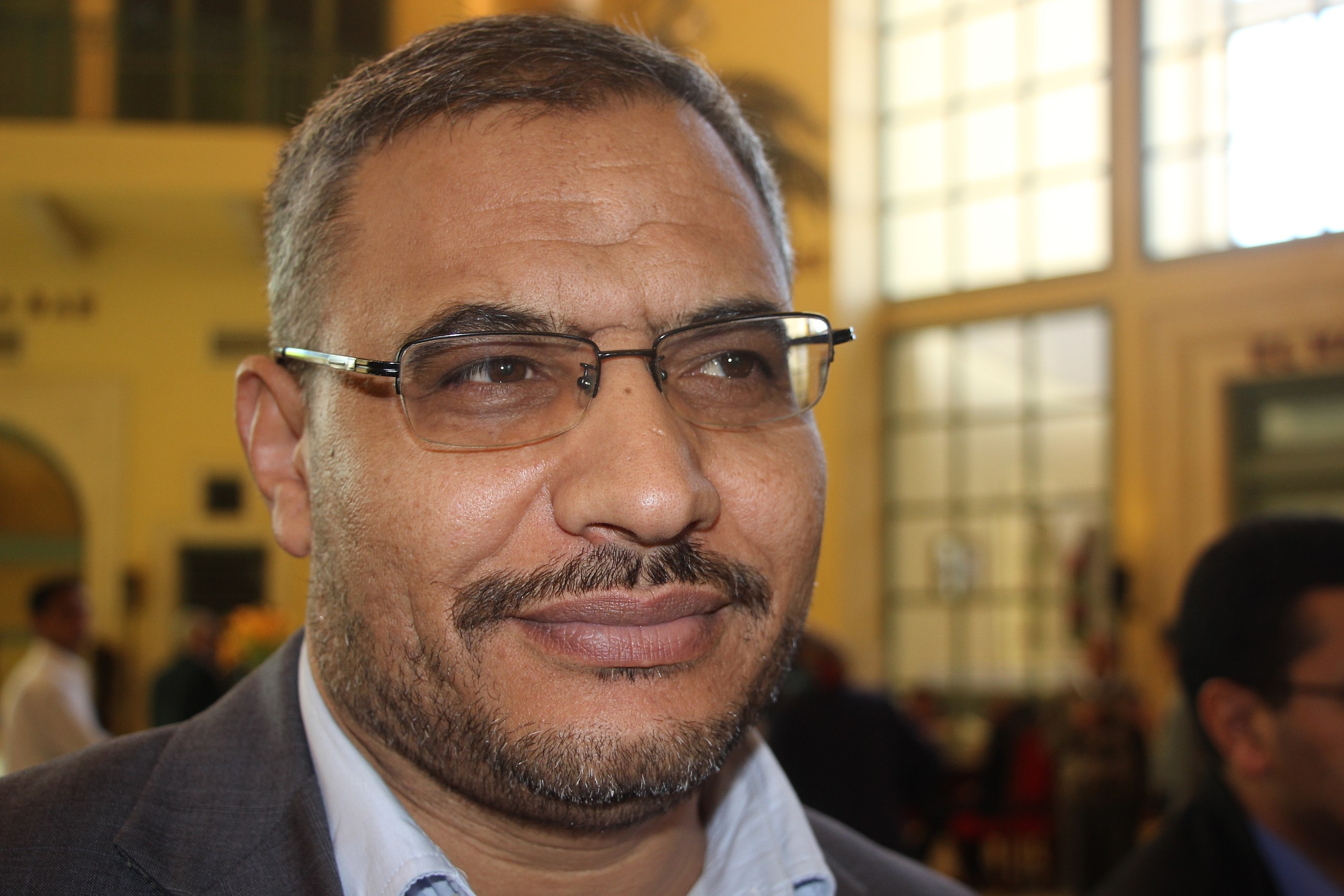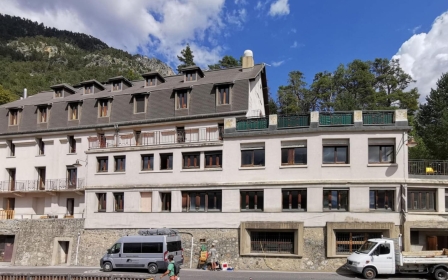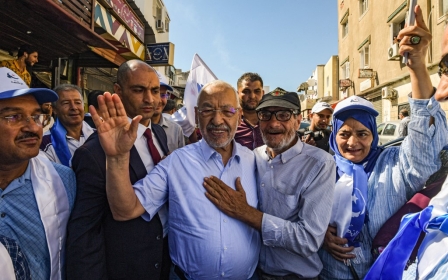Tunisia: Health of jailed Ennahda leader rapidly deteriorating, wife says

The health of a jailed Ennahda party leader in Tunisia is rapidly deteriorating after nearly a month-long hunger strike, according to his family.
Sahbi Atig, a member of the Shura Council for the Ennahda party, has been on hunger strike for 25 days to protest his detention on charges of money laundering and false testimony. He was arrested on 6 May after he tried to board a flight to attend a conference in Turkey.
Atig wife’s, Zainab al-Marayhi, told the Arabic-language new site Al-Araby Al-Jadeed that she and a lawyer visited her husband on Monday, but authorities cut the visit short after Atig showed difficulty standing up and speaking. She says that at one point, he fainted.
"My husband has lost about 20kg and suffers from stomach and heart pains. He is kept in a room with several prisoners who smoke cigarettes, and this worsens his health condition, and he needs a wheelchair," Marayhi said.
Marayhi said her husband is "determined to proceed with his strike" despite warnings from the prison doctor saying that it is posing serious implications to his health due to his heart condition.
New MEE newsletter: Jerusalem Dispatch
Sign up to get the latest insights and analysis on Israel-Palestine, alongside Turkey Unpacked and other MEE newsletters
Atig is one of several opposition leaders caught in a severe crackdown by President Kais Saied. Rached Ghannouchi, the leader of Ennahda, was arrested in April. He was later sentenced in absentia to a year in prison.
Saied, a former constitutional law professor, was democratically elected president in 2019 with a vow to clean up corruption and cut through political chaos. However, in 2021 he shuttered parliament and began consolidating power. He has arrested journalists, activists and political opponents in what Amnesty International has decried as “a politically motivated witch hunt”.
As a fiery populist, Saied billed himself as an outsider who could take on Tunisia’s political parties, which oversaw growth in democracy but also mounting economic challenges in the country of 12 million.
Despite promises to correct the downward trajectory, Saied has overseen skyrocketing inflation and shortages of basic goods. Early this year, he rejected an IMF loan that economists say is necessary to prevent the country’s economic collapse, claiming the lender was issuing “diktats from abroad”.
The US and its western partners have vacillated between scolding and engaging Saied.
The US cut military aid to Tunisia following the closure of parliament, but defence ties have held up since then. At the same time, Washington has cut back financial assistance for civil society groups and human rights promotion.
This article is available in French on Middle East Eye French edition.
Middle East Eye delivers independent and unrivalled coverage and analysis of the Middle East, North Africa and beyond. To learn more about republishing this content and the associated fees, please fill out this form. More about MEE can be found here.




